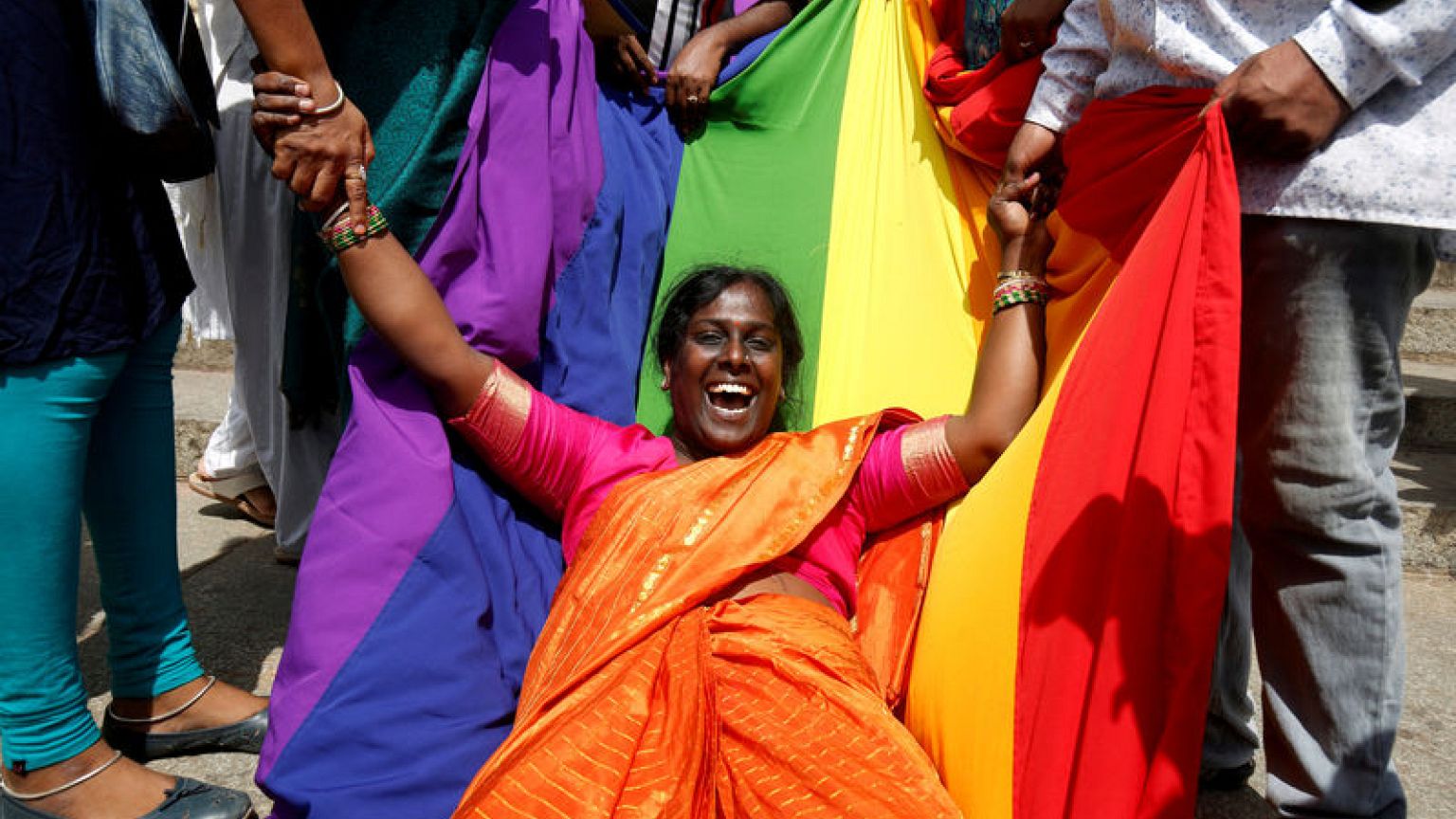By Alasdair Pal and Blassy Boben
NEW DELHI (Reuters) - India's top court scrapped a colonial-era ban on gay sex on Thursday, in a landmark judgement that sparked celebrations across India and elsewhere in South Asia, where activists hope to push for similar reform.
Gay sex is considered taboo by many in socially conservative India, as well as in neighbouring Bangladesh, Sri Lanka and Pakistan. It was reinstated as a criminal offence in India in 2013, punishable up to 10 years in prison, after four years of decriminalisation.
A five-judge bench in India's Supreme Court was unanimous in overturning the ban. But the ruling could face a legal challenge from groups that say gay sex erodes traditional values.
"Any consensual sexual relationship between two consenting adults - homosexuals, heterosexuals or lesbians - cannot be said to be unconstitutional," said the Chief Justice of India, Dipak Misra, as he read out the judgement.
Supporters of the campaign to scrap the ban milled around the court before the verdict and cheered the decision, hugging one another and waving rainbow flags.
Some were overcome with emotion, while others waved banners with slogans such as "Gay and Proud" and "I am who I am". A few distributed sweets in celebration.
"I'm so excited, I have no words," said Debottam Saha, one of the petitioners in the case.
Activists hope the scrapping of the ban will uphold the right to equality but many acknowledged that discrimination would persist.
"We are no longer criminals, (but) it will take time to change things on the ground - 20 to 30 years, maybe," said Saha.
Balachandran Ramiah, a second petitioner, also said there was "a long road ahead when it comes to changing societal mindsets", and stressed the importance of employers ending discrimination in workplaces.
"A number of companies up until now were unable to put these down on paper," he said, referring to steps to end discrimination.
"Now they can."
LONG ROAD
The law against gay sex, known as "Section 377", was introduced during British rule of South Asia more than a century-and-a-half ago.
The law banned "carnal intercourse against the order of nature with any man, woman or animal" - which was widely interpreted to refer to homosexual sex.
The battle to repeal Section 377 began in 2001, when a group called the Naz Foundation challenged it in court. That eventually led to its repeal in 2009.
It was reinstated in 2013 after a legal challenge from an astrologer, Suresh Kumar Kaushal, who told Reuters on Thursday the latest verdict would erode traditional society.
"Marriage is the most sacred part of our culture, many cultures actually," he said. "Sexual relations are a sacred part of this bond."
The ruling Bharatiya Janata Party had said it would support any decision by the Supreme Court but one prominent member of the party criticised the court ruling.
"This verdict could give rise to other issues such as an increase in the number of HIV cases," member of parliament Subramanian Swamy told CNN-News18.
Shashi Tharoor, a senior member of the opposition Congress party, said "the government has no place in the bedroom".
"Private acts between consenting adults is something which no government should have criminalised as unfortunately we have done," he said.
Activists in Muslim-majority Bangladesh and Pakistan said they planned to push for reform of the laws that their countries also inherited from colonial Britain.
"The Bangladeshi LGBT community has gained moral support," said Shahanur Islam, executive director of the Bangladesh Institute for Human Rights.
"We hope and will make sure that other countries will follow suit in overturning this remnant from colonial law,” said Mani Aq of the Pakistani branch of the Naz Foundation.
(Reporting by Alasdair Pal and Blassy Boben; Additional reporting by Suchrita Mohanty and Malini Menon and Ruma Paul in DHAKA; Editing by Sanjeev Miglani, Robert Birsel)














